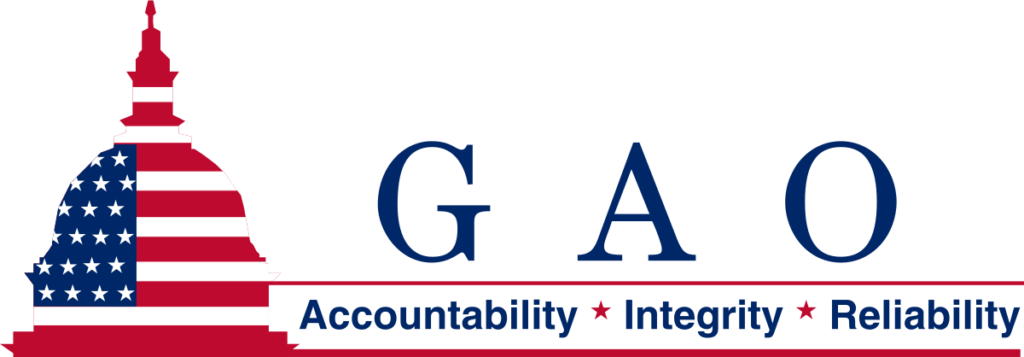The CFPB’s Lack of Candor to the Court, Continued
Having closely followed the Consumer Financial Protection Bureau since its inception, I’m struck by the arguments that the CFPB is now making to the Supreme Court. After all, they squarely contradict a decade’s worth of the CFPB’s own statements. I’ve detailed that on Notice & Comment and elsewhere, but here is one more example, involving a 2016 brief that the CFPB filed with the Government Accountability Office.

As I sketched out in an earlier post, the Dodd-Frank Act perpetually empowers the CFPB to claim nearly $1 billion dollars from the Federal Reserve annually, funds that would otherwise revert to the U.S. Treasury. All of this is a function not of appropriations laws, but of the Dodd-Frank Act of 2011, and it poses a real problem under the Constitution, which requires that “No Money shall be drawn from the Treasury, but in Consequence of Appropriations made by Law.” As I suggested in my earlier post, this grant of perpetual power for the CFPB to fully fund itself seems an outright delegation of Congress’s power of the purse, allowing it to spend Treasury funds without appropriations by law.
In my earlier post, I pointed out that the CFPB has long declared itself to be a “non-appropriated” agency. (And in a December op-ed, I cataloged many more examples of the CFPB’s declarations of “non-appropriated” status, which I’d collected over the years.) The CFPB spent more than a decade trumpeting the fact that its funds are “non-appropriated,” until such “non-appropriated” status suddenly became a legal problem for the agency. In fact, the CFPB even reiterated its “non-appropriated” status as recently as November 2022, while it was saying the very opposite to the Fifth Circuit and Supreme Court.
I’ve been struck, frankly, by the Justice Department’s and CFPB’s lack of candor to the Court on this issue. Neither their petition for certiorari nor their new cert-stage reply brief admits that the agency’s arguments before the Court are directly contradicted by the agency’s consistent statements from its very beginning, despite the fact that some of the quotes were flagged by an amicus brief—indeed, an amicus brief that the CFPB responded to on another point.
My purpose in this post, however, is not to re-litigate the entire point, but to raise one particularly interesting example of the CFPB’s change of tune:
Before the Supreme Court, the CFPB and Justice Department rely heavily on the Government Accountability Office’s well-respected interpretations of what qualifies as an “appropriations” act. As I noted in my earlier post, there is much in the GAO’s work that implicitly supports the CFPB’s argument that Dodd-Frank itself is an “appropriations law,” though there is also much in the GAO’s work that more directly contradicts that argument.
But even more interesting—and, as with all of the CFPB’s past statements, entirely omitted from the CFPB’s and Justice Department’s new arguments to the Supreme Court—is the fact that the CFPB itself once urged the GAO to accept the agency’s status as “non-appropriated,” and the GAO seemed to agree.

This arose in litigation contesting a bid that the CFPB had awarded to a contractor for a CFPB project. One of the losing bidders appealed to the GAO, which has jurisdiction to review contractor disputes. But the CFPB protested the GAO’s own jurisdiction in that case, arguing that the GAO only has jurisdiction over agencies’ use of appropriated funds.
According to the GAO’s report, the CFPB filed an entire brief, in which it “argued that our Office lacks jurisdiction here because the CFPB is an independent agency within the Federal Reserve System, and is funded by nonappropriated funds.”
The GAO’s final decision did not dispute the CFPB’s assertion that its funds are “nonappropriated”; instead, the GAO concluded that it still had jurisdiction over the dispute, because federal law now extends the GAO’s review authority to executive agencies regardless of whether they are spending appropriated or non-appropriated funds.
I would stop short of saying that the GAO “held” that the CFPB is non-appropriated. Rather, it seems to accept the CFPB’s characterization of “non-appropriated” funding at face value, before concluding that such “non-appropriated” status is ultimately irrelevant to the GAO’s jurisdiction over the CFPB.
Then again, the GAO summarizes its own ruling in fairly blunt terms: the CFPB is subject to the GAO’s jurisdiction “even though it is funded by nonappropriated funds.”
The GAO’s ruling is no great surprise—as I noted in my earlier post, the GAO seems to have long treated the CFPB as a “non-appropriated” agency.
Still, it would be interesting to see the CFPB’s 2016 brief to the GAO, to see exactly how the CFPB described its “non-appropriated” status then.
It is one thing for the CFPB and Justice Department to simply not be candid to the Supreme Court about the fact that the agency’s own financial reports and other statements are inconsistent with the agency’s legal arguments to the justices. It is quite another thing for the CFPB’s own legal officers to make inconsistent arguments, in legal briefs, to both the GAO and the courts.
Unfortunately, the CFPB’s brief is not publicly available. The GAO declined a FOIA request for the brief, and the CFPB has not responded (so far) to a similar FOIA request.
For those of us who study the CFPB, its funding structure, and its proper place in constitutional government, the CFPB’s 2016 brief would be of great interest. In the meantime, we’re left with the GAO’s description of the CFPB’s arguments, along with a decade’s worth of the CFPB’s other declarations that it is not funded by “appropriations,” which squarely contradict the CFPB’s new arguments to the courts.
Adam J. White is a senior fellow at the American Enterprise Institute and co-director of the Antonin Scalia Law School’s C. Boyden Gray Center for the Study of the Administrative State.



